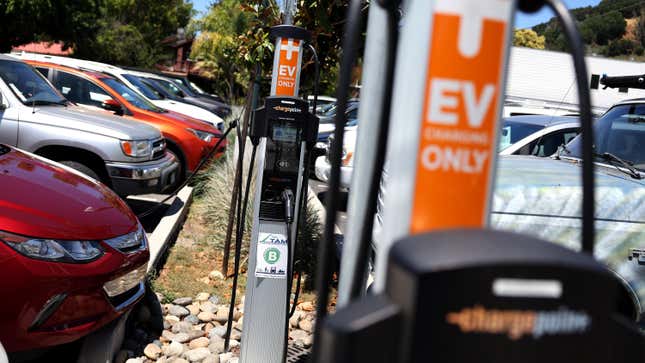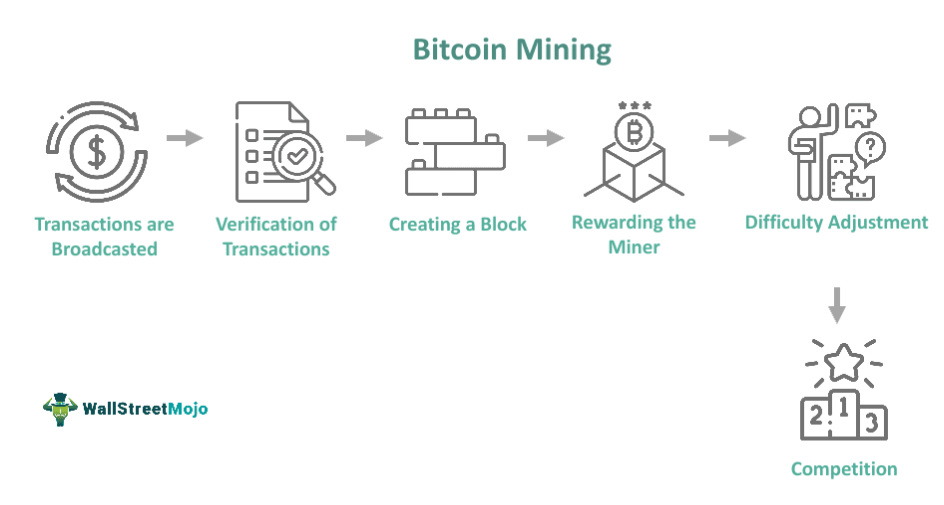Auto Dealers Intensify Fight Against Mandatory Electric Vehicle Sales

Table of Contents
Governments worldwide, including the EU, California, and several Asian nations, are implementing increasingly stringent regulations to curb carbon emissions. These regulations often involve mandates requiring a certain percentage of electric vehicles in dealerships' sales figures, setting ambitious targets for EV adoption within specific timeframes. This article will explore the reasons behind the intensified resistance from auto dealers, highlighting the key challenges they face in adapting to this rapidly evolving landscape.
Financial Concerns and Infrastructure Challenges
One of the primary reasons for dealer resistance to mandatory EV sales is the significant financial burden involved. The upfront investment required to stock EVs is considerably higher than for traditional gasoline-powered vehicles. This is exacerbated by the uncertainty surrounding consumer demand for EVs in certain regions, leading to the risk of unsold inventory and substantial financial losses.
- High initial investment in EV inventory: Electric vehicles often command a higher price tag than comparable gasoline cars, requiring dealerships to invest significantly more capital in their inventory.
- Uncertainty regarding consumer demand: Consumer adoption of EVs varies greatly depending on factors like regional infrastructure, electricity prices, and government incentives. This unpredictable demand makes inventory management incredibly challenging.
- Lack of government support for building robust EV charging networks: The absence of a widespread, reliable charging infrastructure remains a major obstacle to EV adoption. Insufficient public charging stations hinder consumer confidence and limit the practical use of electric vehicles.
- Potential for unsold EV inventory leading to financial losses: Dealerships face the risk of being stuck with unsold EVs, tying up significant capital and potentially leading to considerable financial losses. This is particularly concerning given the faster rate of technological change in the EV market compared to traditional vehicles.
Training and Expertise Gaps
The transition to electric vehicles also presents significant challenges in terms of training and expertise. Selling and servicing EVs require specialized knowledge and skills that many dealerships currently lack. The complexity of EV technology, including battery management systems, electric motors, and advanced electronics, demands a higher level of technical expertise compared to traditional internal combustion engine (ICE) vehicles.
- Dealerships require investment in training programs: Significant investments are needed to train mechanics and sales personnel on the intricacies of EV technology, including diagnostics, repairs, and maintenance.
- Lack of readily available EV repair and maintenance expertise: The specialized nature of EV repairs and maintenance means a shortage of qualified technicians capable of handling these tasks effectively.
- The complexity of EV technology: Electric vehicles incorporate complex systems and technologies that differ significantly from traditional ICE vehicles, requiring extensive training for both sales and service teams.
- High cost of training programs: Investing in comprehensive EV training programs can be expensive, placing an additional financial burden on dealerships already grappling with the costs of EV inventory.
Consumer Resistance and Misconceptions
Despite the increasing popularity of EVs, significant consumer resistance remains. Concerns about range anxiety, charging times, and perceived higher purchase costs continue to hinder widespread adoption. Addressing these misconceptions is crucial for driving EV sales and reducing the resistance that dealerships are facing.
- Range anxiety: Many potential buyers remain concerned about the limited driving range of EVs and the availability of charging stations, especially during long journeys.
- Charging infrastructure and charging times: The lack of readily available charging infrastructure, coupled with relatively long charging times compared to refueling gasoline vehicles, discourages potential buyers.
- High initial purchase price: The higher initial purchase price of EVs compared to similar gasoline-powered vehicles is another factor deterring consumers.
- Misconceptions about EV maintenance costs and battery lifespan: Many consumers have misconceptions about the maintenance costs and the lifespan of EV batteries, leading to hesitancy in purchasing electric vehicles. Accurate information and transparency are needed to address these issues.
Dealer Lobbying Efforts and Political Pressure
Facing these significant hurdles, auto dealer associations are actively lobbying against or seeking modifications to mandatory EV sales regulations. These efforts include legal challenges, lobbying campaigns to influence government policies, and public relations campaigns designed to shape public opinion and highlight the difficulties faced by dealerships.
- Legal challenges: Dealer associations have filed lawsuits challenging the legality and practicality of the mandatory EV sales quotas.
- Lobbying efforts: Intensive lobbying efforts target government officials to advocate for more realistic targets and increased support for the transition to electric vehicles.
- Public relations campaigns: Public awareness campaigns aim to educate the public on the challenges faced by dealerships and to advocate for policies that support both the industry and the environment.
Conclusion: The Ongoing Battle Over Mandatory Electric Vehicle Sales
The transition to electric vehicles is undoubtedly crucial for environmental sustainability, but the current approach of mandating EV sales is creating significant friction within the automotive industry. This article has highlighted the financial burdens, training challenges, consumer hesitancy, and dealer lobbying efforts that underscore the ongoing battle between auto dealers and government mandates. The future outcome will depend on the ability of policymakers, automakers, and dealerships to find a more balanced and sustainable approach to accelerate EV adoption while mitigating the significant challenges faced by the industry. We encourage readers to engage in informed discussions about the impact of mandatory electric vehicle sales on auto dealers and the broader implications for the future of the automotive industry. Understanding the nuances of this complex issue is vital to shaping a responsible and effective transition to a cleaner transportation future.

Featured Posts
-
 Brasileirao Arrascaeta Lidera Flamengo A Vitoria Contra O Gremio
May 08, 2025
Brasileirao Arrascaeta Lidera Flamengo A Vitoria Contra O Gremio
May 08, 2025 -
 Inter Milan Stuns Barcelona Advances To Champions League Final
May 08, 2025
Inter Milan Stuns Barcelona Advances To Champions League Final
May 08, 2025 -
 Vesprem Desetta Pobeda Ps Zh E Porazen
May 08, 2025
Vesprem Desetta Pobeda Ps Zh E Porazen
May 08, 2025 -
 Bitcoin Miner Surge Understanding This Weeks Increase
May 08, 2025
Bitcoin Miner Surge Understanding This Weeks Increase
May 08, 2025 -
 Dossier On Papal Candidates Cardinals Face Crucial Choice
May 08, 2025
Dossier On Papal Candidates Cardinals Face Crucial Choice
May 08, 2025
